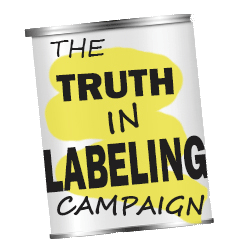I’m certainly not afraid to speak out. I’ve been speaking out on the hazards of MSG for more than 30 years along with Jack Samuels, slowing down only to grieve his death and tell his story, “It Wasn’t Alzheimer’s, It Was MSG.” Given that the US maker of MSG controls the medical journals, the media, and the FDA as well as legislators who might have FDA oversight, speaking out has been limited to updating our fact-based webpage, making it easier to use and writing blogs. And I filed three Citizen Petitions with the FDA requesting that MSG and the toxic glutamate in it be stripped of their GRAS (generally recognized as safe) status. But apparently those who would or could do something for the welfare of the American people were not paying attention.
But something changed in the 2020s. Maybe the pandemic caused some soul searching – at least in Asia and Africa. Maybe there was so much free-glutamate in processed food (free-glutamate being the toxic ingredient in MSG and all other flavor enhancers) that the numbers of people reacting to flavor enhancers escalated to the point that it couldn’t be denied. Or maybe Ajinomoto’s campaigns to clear MSG of its bad name backfired, and people realized that it was lies that were being told over and over and over again in industry propaganda dressed up as news — or lies being told by celebrity chefs who really don’t use MSG in their cooking.
Today a friend of the Truth in Labeling Campaign sent me a copy of this research: “Worldwide flavor enhancer monosodium glutamate combined with high lipid diet provokes metabolic alterations and systemic anomalies: An overview” that included the warning, “This comprehensive review formulates health care strategies to create global awareness about the harmful impact of [MSG with a high lipid diet] on the human body and recommends the daily consumption of more natural foods rich in antioxidants instead of toxic ingredients.”
And that wasn’t the only warning I’ve seen in recent years. Others have included:
- Study of the Toxic Effects of Monosodium glutamate on the Central Nervous System (Egypt)
- Entering a new era of quantifying glutamate clearance in health and disease (Canada)
- Anti-inflammatory activity of ginger modulates macrophage activation against the inflammatory pathway of monosodium glutamate (Egypt)
- Targeting metabotropic glutamate receptors for the treatment of depression and other stress-related disorders (USA)
- Modulation of immune functions, inflammatory response, and cytokine production following long-term oral exposure to three food additives; thiabendazole, monosodium glutamate, and brilliant blue in rats (Egypt)
- Natural products as safeguards against monosodium glutamate-induced toxicity (Iran)
- Dietary monosodium glutamate altered redox status and dopamine metabolism in lobster cockroach (Nauphoeta cinerea) (Nigeria)
- Antiapoptotic and antioxidant capacity of phytochemicals from Roselle (Hibiscus sabdariffa) and their potential effects on monosodium glutamate-induced testicular damage in rat (Egypt)
- Monosodium Glutamate (MSG)-Induced Male Reproductive Dysfunction: A Mini Review (Nigeria)
In the 1980s, researchers focused on identifying and understanding abnormalities associated with glutamate, often for the purpose of finding drugs that would mitigate glutamate’s adverse effects. It is well documented that free glutamate is implicated in kidney and liver disorders, neurodegenerative disease, and more. By 1980, glutamate-associated disorders such as headaches, asthma, diabetes, muscle pain, atrial fibrillation, ischemia, trauma, seizures, stroke, Alzheimer’s disease, amyotrophic lateral sclerosis (ALS), Huntington’s disease, Parkinson’s disease, depression, multiple sclerosis, schizophrenia, obsessive-compulsive disorder (OCD), epilepsy, addiction, attention-deficit/hyperactivity disorder (ADHD), frontotemporal dementia and autism were on the rise, and evidence of the toxic effects of glutamate were generally accepted by the scientific community. A November 15, 2020 search of the National Library of Medicine using PubMed.gov returned 3872 citations for “glutamate-induced.”
Millions of health care dollars could be saved by simply considering MSG when making diagnoses. And if the truth about the toxic potential of free glutamate were told and its use in food reduced, disease and disability would certainly be reduced with it. Given that free glutamate plays a role in a wide variety of abnormalities, decreasing the amount of free glutamate added through ingestion of free glutamate in flavor enhancers and protein substitutes to the body’s glutamate pools certainly wouldn’t do any harm, and many have argued that evidence says that decreasing the presence of excitotoxic amino acids in processed and ultra-processed foods is called for. It’s time to follow the science of independent researchers and not the propaganda spewed forth by the glutamate industry.
Adrienne Samuels
If you have questions or comments, we’d love to hear from you. If you have hints for others on how to avoid exposure to MfG, send them along, too, and we’ll put them up on Facebook. Or you can reach us at questionsaboutmsg@gmail.com and follow us on Twitter @truthlabeling.


